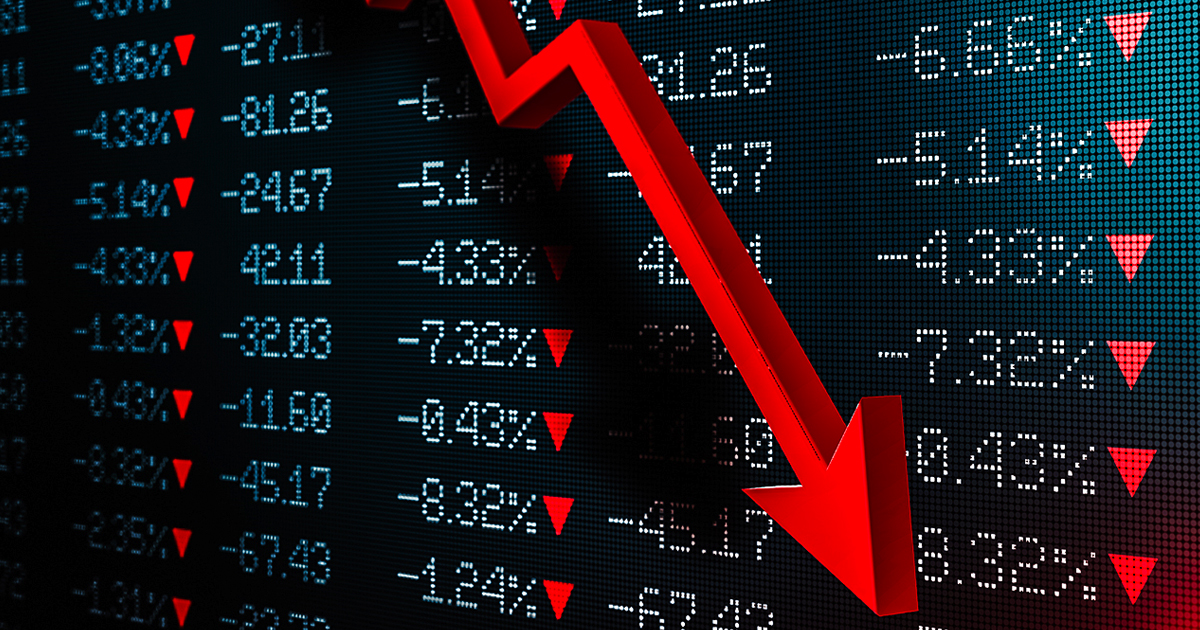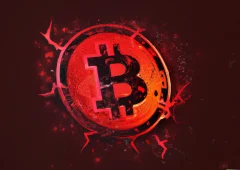US Recession Fears Fuel Market Selloffs as Economic Predictions Diverge
11.03.2025 18:30 1 min. read Alexander Stefanov
These past few days, fears of a looming U.S. recession triggered sharp selloffs in both tech and crypto stocks.
This came despite efforts from the White House to calm growing economic concerns. JPMorgan economists now estimate a 40% chance of a recession in 2025, a significant increase from their earlier 30% forecast.
Their assessment points to the risks posed by current U.S. policies, which they believe could push the economy into a downturn.
Goldman Sachs also raised its recession risk for the year to 20%, up from 15%, warning that the situation could worsen if the Trump administration sticks to its current approach despite unfavorable data.
On the other hand, Morgan Stanley lowered its growth expectations, predicting only 1.5% GDP growth for 2025, with inflation likely to remain high.
While concerns mounted, Kevin Hassett, an adviser to President Trump, offered a more optimistic view, suggesting on March 10 that there are reasons to remain positive despite some troubling economic signals. Trump himself downplayed the recession risks, calling the U.S. economy “in transition” during a Fox News interview on March 9.
Adding to the mixed sentiment, Polymarket, a blockchain-based betting platform, pointed to recession odds as one of the most closely watched financial indicators right now, reflecting the uncertainty gripping markets.
-
1
Robert Kiyosaki Predicts 2025 “Super-Crash,” Urges Hoarding Gold, Silver, and Bitcoin
23.06.2025 13:31 2 min. read -
2
Billionaire Slams Meme Stock Hype and Sounds Alarm on U.S. Fiscal Health
15.06.2025 18:00 2 min. read -
3
Nassim Taleb Says Global Trust Is Shifting from the Dollar to Gold
22.06.2025 17:00 1 min. read -
4
Billionaire Investor Sees Dollar Crash If Key Support Breaks
18.06.2025 15:00 1 min. read -
5
Geopolitical Shockwaves Hit Ethereum Hard While Bitcoin Stays Resilient
22.06.2025 16:21 1 min. read
Robert Kiyosaki Predicts When The Price of Silver Will Explode
Robert Kiyosaki, author of Rich Dad Poor Dad, has issued a bold prediction on silver, calling it the “best asymmetric buy” currently available.
U.S. PCE Inflation Rises for First Time Since February, Fed Rate Cut Likely Delayed
Fresh data on Personal Consumption Expenditures (PCE) — the Federal Reserve’s preferred inflation gauge — shows inflation ticked higher in May, potentially delaying the long-awaited Fed rate cut into September or later.
Trump Targets Powell as Fed Holds Rates: Who Could Replace Him?
Federal Reserve Chair Jerome Powell is once again under fire, this time facing renewed criticism from Donald Trump over the Fed’s decision to hold interest rates steady in June.
U.S. National Debt Surge Could Trigger a Major Crisis, Says Ray Dalio
Billionaire investor Ray Dalio has sounded the alarm over America’s soaring national debt, warning of a looming economic crisis if no action is taken.
-
1
Robert Kiyosaki Predicts 2025 “Super-Crash,” Urges Hoarding Gold, Silver, and Bitcoin
23.06.2025 13:31 2 min. read -
2
Billionaire Slams Meme Stock Hype and Sounds Alarm on U.S. Fiscal Health
15.06.2025 18:00 2 min. read -
3
Nassim Taleb Says Global Trust Is Shifting from the Dollar to Gold
22.06.2025 17:00 1 min. read -
4
Billionaire Investor Sees Dollar Crash If Key Support Breaks
18.06.2025 15:00 1 min. read -
5
Geopolitical Shockwaves Hit Ethereum Hard While Bitcoin Stays Resilient
22.06.2025 16:21 1 min. read


